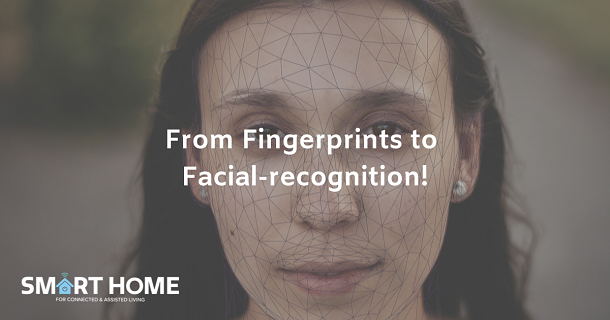From Fingerprints to Facial-recognition!
Advancements in technology go beyond ‘a thought’ and into reality. Picture this, you’re welcoming a guest into your hotel at the front desk and on their approach, an instant message appears on your desktop outlining who the particular guest is, even before he or she states a name or provides an I.D., with a full profile of the customer made available on your screen and other customer service centres in the hotel. This isn’t science fiction, it’s a reality that's happening today through the use of facial-recognition technology.
Mapping multiple unique physical features on people’s faces, facial recognition technology is like a fingerprint and falls under biometrics, using measurements between key facial features, skin texture, thermal imaging, unique facial landmarks and more. The best feature offered is the ability to recognise customers at a distance and incorporate this ID to open up multiple security and guest service possibilities in the hospitality environment. This technology has already hit hotels with multiple properties in China, including limited Marriott and FlyZoo hotel, built by Alibaba tech giant. If you’re up-to-date with all things facial recognition, then you’ll know that China is the country at the forefront of implementing facial recognition technology.

Facial recognition in hospitality has been introduced into a guest’s reservation and their journey, from booking to entering their room. Customers can use apps to choose their hotel room and make their reservation - on arrival, the guests face is scanned matching with their photo on the app and access to the elevator and their room is granted - it’s becoming that simple! The Marriott, for example, uses similar technologies to speed up the lobby check-in process. These technologies will enhance the customer experience as it allows for hotels to then build a more accurate profile of guests, immediately recognising special customers as they enter the hotel and move throughout different sections, therefore notifying employees of their arrival.
What’s more, facial recognition can be used to improve a hotel’s security. Accurate security measures are being put in place to secure the bustling public spaces of a hotel. Facial recognition makes it possible to have a database of known criminals and other problematic people and alert security personnel of potential dangers, as well as limited access to certain areas and control them as needed. Overall advancements in security are being propelled into the future with the safety of guests and employees at the forefront.
However, people often question the reliability of these technologies and whether or not we’re running before we can walk - facial recognition is not always accurate, which could lead to mistaken identity, and generally depends on the current stored data and system, which raises questions on keeping stored personal identifiable information.
It’s evident that there are still leaps to be made in these technologies, and generally we have to wait years for these bridges to be built, however with the advancements as of late, it won’t be long before the accuracy rates of facial technologies are near as perfect - good or not, that’s for you to decide!
LinkedIn l Facebook l Twitter
LinkedIn l Facebook l Twitter


